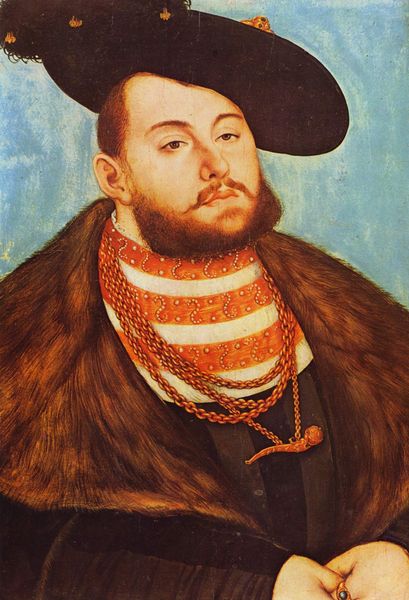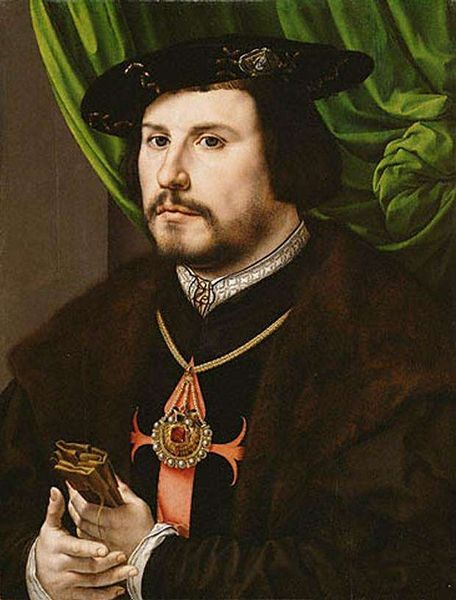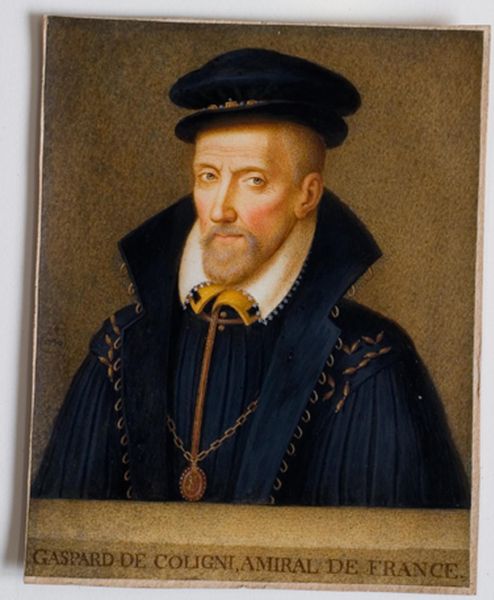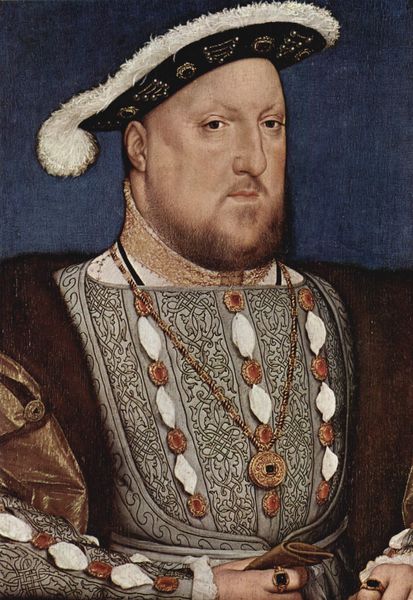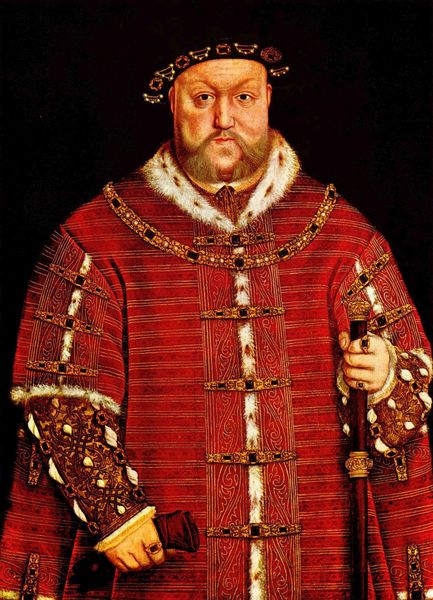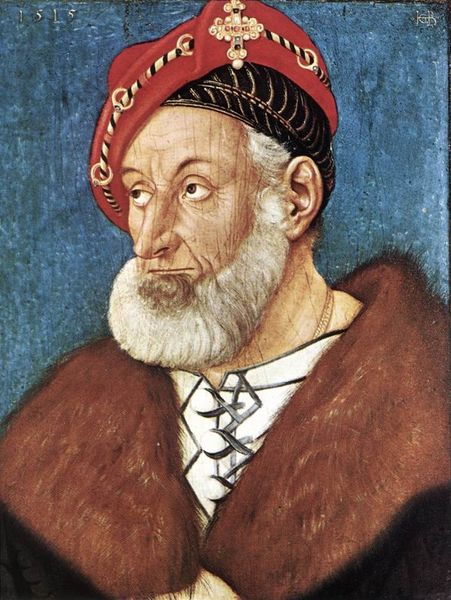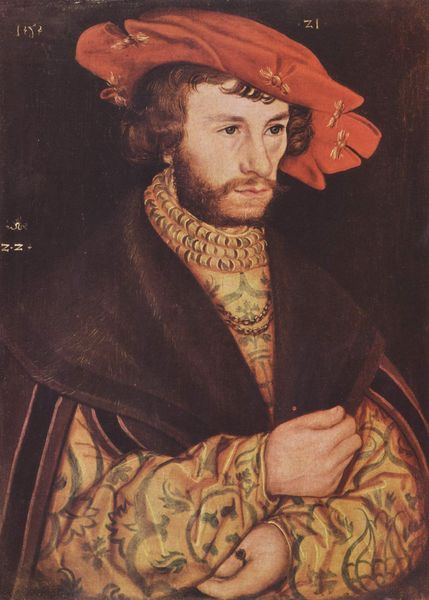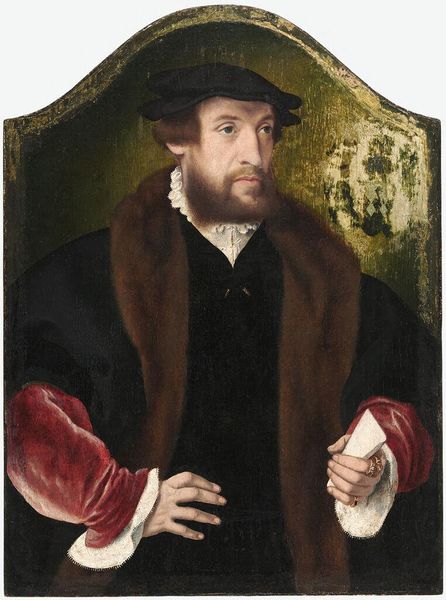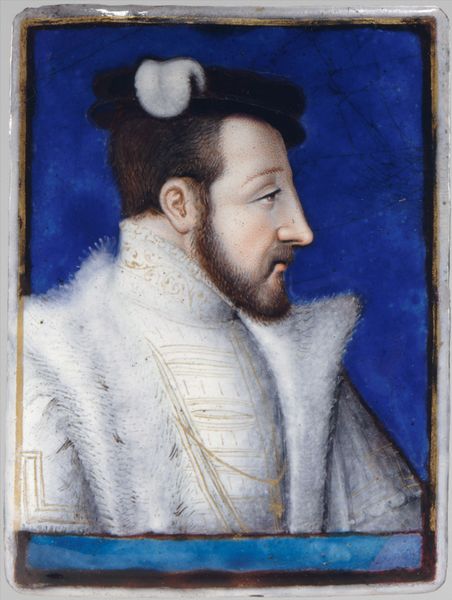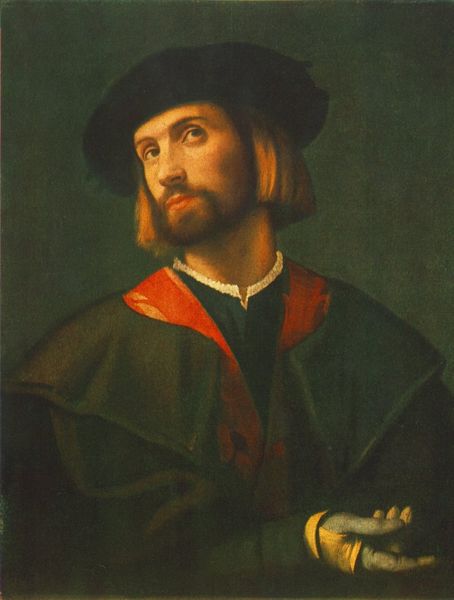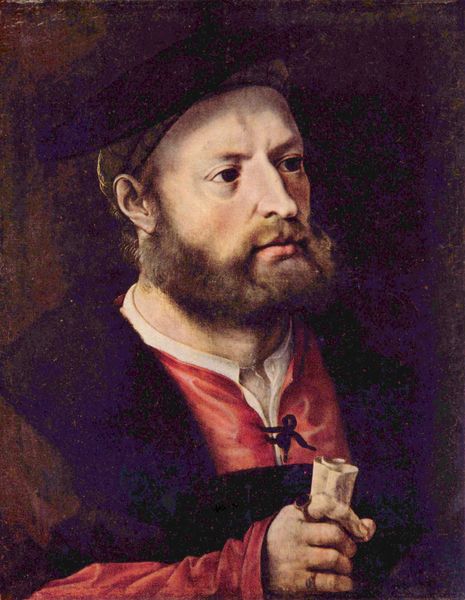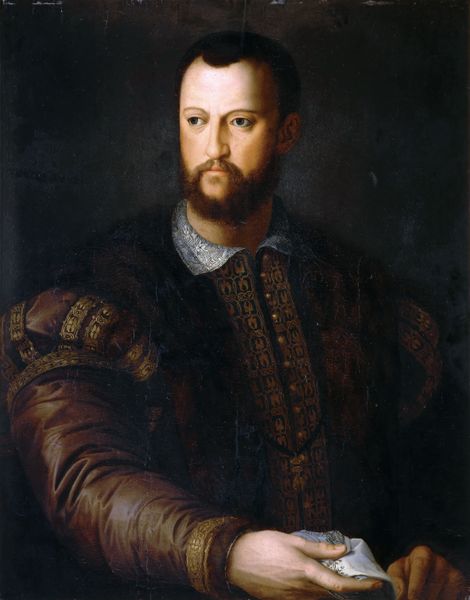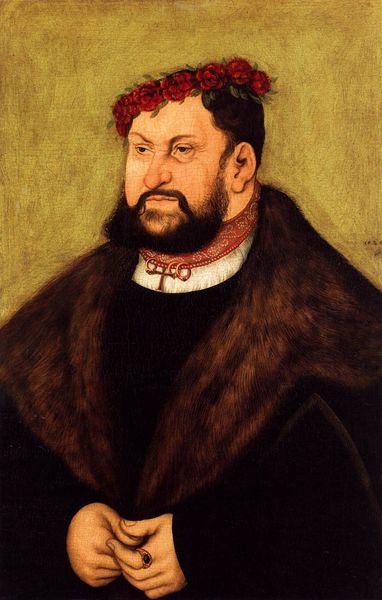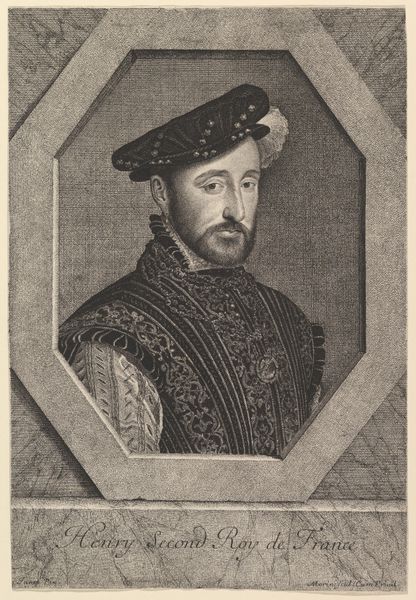
painting, oil-paint
#
portrait
#
painting
#
oil-paint
#
11_renaissance
#
history-painting
#
northern-renaissance
Dimensions: 51 x 36 cm
Copyright: Public domain
Curator: Right, here we have Lucas Cranach the Elder's portrait of Charles V, painted in 1533, currently residing in the Thyssen-Bornemisza Museum. Editor: Heavy! That fur collar, the dark cap...it’s all weight, solemnity. I'd say a rather somber depiction. Does he ever smile, I wonder? Curator: Well, being Emperor of the Holy Roman Empire was serious business! And a portrait was a powerful statement in the 16th century. Cranach's workshop produced multiple portraits of Charles, reflecting the importance of projecting an image of imperial authority. Editor: So image management even then, huh? But, there's also this softness around the eyes… vulnerability maybe? It's peeking through the imperial facade. And I keep noticing the way the light catches in the fur. He almost melts into it. Curator: That’s interesting, because this portrait represents Charles during a complex time. Just three years prior, at the Imperial Diet of Augsburg, he’d witnessed the presentation of the Augsburg Confession, a key document of the Lutheran Reformation. So there's the persona but also the person. Editor: Reformation drama! Did that impact Cranach? Wasn't he connected with Luther himself? Curator: Exactly. Cranach was closely associated with the Reformation and a friend of Martin Luther. His ability to navigate the complex political landscape of the time while being associated with the Reformation demonstrates his skillful diplomacy as a court artist. This particular work presents a fairly traditional and less partisan portrait than his work sometimes demonstrated. Editor: He walked a tightrope. Knowing who his patron was. The portrait, in that context, takes on a whole other dimension, doesn't it? Beyond just documenting the Emperor, it speaks to navigating treacherous social undercurrents. Curator: Precisely. It highlights the constraints and the careful calculations required of an artist in that era. To think an artwork we may pass without pausing to see carries such narratives! Editor: True. Makes you think twice about that imposing image, huh? Gives a richer depth.
Comments
No comments
Be the first to comment and join the conversation on the ultimate creative platform.
